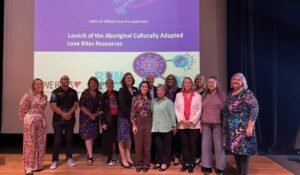23 November, 2018
NAPCAN: Why is child abuse prevention not Australia’s number one priority?
Once again, the deaths of young children have shocked and saddened Australians.
This news touches all of us, and motivates many of us to take action.
The National Association for Prevention of Child Abuse and Neglect (NAPCAN) suggests that the only answer is a whole new approach focusing on prevention rather than reaction.
NAPCAN’s Deputy CEO, Leesa Waters says, “The sad fact is that we will continue to see these heartbreaking stories unless the prevention of child abuse and neglect becomes a number one priority for all levels of government and the community.”
“We need to look at such tragedies and ask ‘how could this have been avoided?’ and ‘how can all adults be proactive in keeping children safe and well?’.
“However, it’s not enough to only go back as far as the past few weeks or months, and simply blame the child protection system. If we really want to prevent abuse and neglect, we need to go back much further.
“We need to reduce the risk factors for abuse and neglect (such as social isolation, poverty, addiction, poor mental health) and boost the protective factors (such as universal services for all families, strong connected communities).”
“Quite simply, we don’t need another enquiry into the child protection system. Because the child protection system is not the answer. “
NAPCAN’s National Manager for Child Safe Organisations, Sammy Bruderer added, “We already know that the system is in crisis. We already know that most of the workers are stressed and stretched beyond capacity. We already know that children fall through the cracks because of a lack of information-sharing between jurisdictions.
“We already know that by the time a child has reached the government system they have already suffered unacceptable pain. In most cases, there have already been many, many missed opportunities to change the outcome for the family.
“Better childhoods are the key to addressing nearly every single social problem across the country. Ensuring children are cared for, nurtured and protected within strong families and communities is the most efficient and cost effective strategy for the future of Australia.”
Ms Waters added, “At NAPCAN we hear from people every day who are deeply concerned about the welfare of Australia’s children.
“They understand that protecting our children is a shared responsibility for all of us and they are asking ‘What can I do to help?’.
“They understand that protecting our children is not just about reporting when we think that something is wrong; it’s about working together to stop abuse from ever happening in the first place.
“We can all be advocates for children by demanding that the welfare of children be considered in all decisions at all levels of government, and that the voices of children are valued and heard.
“We can all support universal services that help all Australians and ultimately reduce abuse – for instance, neonatal support, home visits, playgroups, parent mentoring and education, high quality childcare and education, affordable health care, community recreational facilities and activities, and respectful relationships education.
“We can all help to build the types of communities where children can thrive; where there is a sense of belonging, where people know each other, where families are treated with compassion and get the support they need, where children are seen and heard, and where everyone plays a part in keeping children safe.”
Find out more about the importance of prevention and how you can play your part at www.napcan.org.au.
Media contact: For more information or interviews, please contact Helen Fogarty on 0410 541997 or helen.fogarty@napcan.org.au
Note: Concepts covered in this statement are summarised in NAPCAN’s 3-minute video: The Continuum of Wellbeing available at https://www.youtube.com/watch?time_continue=4&v=ITrm7D5bY3k



